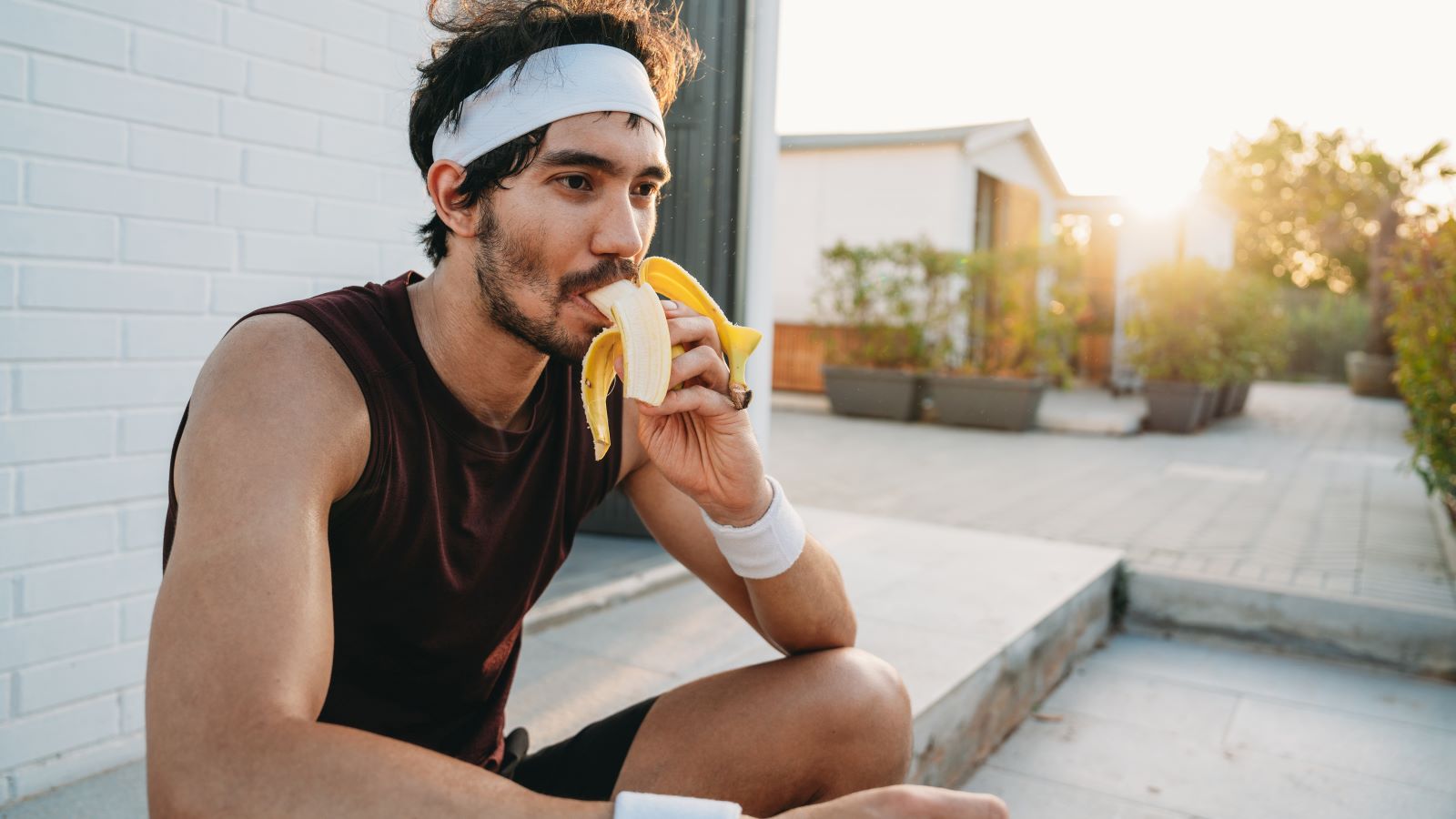<< Back
What Athletes Should Eat — Before, During and After Competing

September 08, 2025
While you’re working hard on the field, your body is working even harder behind the scenes. And what you eat can have a big impact on how you perform.
So whether you’re training for your next soccer tournament, a marathon or this weekend’s pickleball showdown, here’s what to eat — before during and after competition — to keep your body fueled and performing at its best.
The week before.
If you’re a competitive athlete, you might think it’s all about the protein shakes. Not quite.
“For someone who’s very active, it’s still important to follow the foundational nutrition principles,” says Chris Barrett, RD, a registered dietitian with the Hartford HealthCare Bone & Joint Institute. “Two to three servings of fruit a day, two to four cups of vegetables, plenty of protein and whole grains for at least half of your carbs.”
Once you’ve nailed those, you can start adding more carbs to fuel your extra activity.
“If you’re extremely active, you do have some more flexibility with your diet,” says Barrett. “For example, after a long run (training for a marathon) banana bread or a blueberry muffin after a workout can help with recovery.”
Just look out for any foods that cause you digestive distress – especially close to game time.
Foods to try:
- Greek yogurt with berries and granola
- Peanut butter on whole grain toast with sliced banana
- Grilled chicken with quinoa and roasted vegetables
- Salmon with brown rice and broccoli
The night before.
Unless you’re running a marathon or competing in a high-intensity event for more than two hours, full-on carb loading might not be necessary. Instead, Barrett encourages athletes to “fuel the work that’s required.”
“The goal is to fuel your body without doing anything risky or unfamiliar,” says Barrett. “That means skipping the exotic takeout sushi you have never tried before, or undercooked burgers from a street vendor.”
Instead, dinner should consist of mostly carbohydrates, with a moderate amount of protein. And don’t forget to hydrate.
“The color of your urine can tell you a lot,” Barrett notes. “If it’s darker than pale yellow – think apple cider – that’s a sign to drink more fluids. A sprinkle of electrolyte powder before bed can help keep you hydrated through the night, too”.
Foods to try:
- Grilled chicken and whole wheat pasta with marinara sauce
- Lean beef with brown rice and roasted vegetables
- Salmon with baked sweet potato and a side salad
- A stir fry with brown rice, tofu and sautéed vegetables
Day of competition.
When it comes to deciding what to eat before a competition, the morning of your event isn’t the time to try something new.
“The most important thing is to eat something you’ve practiced with before,” says Barrett. “I call it the ‘tried-and-true’ meal.”
This meal should be high in carbs, low in fat, and easy to digest. If possible, Barrett suggests eating three to four hours before your event. If not, eat a smaller portion and keep snacking up until about 30 minutes before competition time.
Foods to try:
- A bagel with peanut butter and a banana
- Oatmeal with banana and an energy bar
- Low-fiber cereal and fruit
- Scrambled eggs with whole grain toast
> Related: 5 Healthy Breakfast Ideas for Busy Mornings
While you’re competing.
If your event spans several hours – think an all-day soccer tournament or track meet – you’ll need to keep eating and drinking throughout the day.
“If you have a few hours between events, eat a full meal like a sandwich with pretzels and fruit,” says Barrett. “If you only have one to two hours, go with smaller snacks – dry cereal, fruit, pretzels or/and a sports drink.”
Try to avoid high-fiber or high-fat foods close to your event. Even too much fruit juice can upset your stomach if you’re on a tight timeline.
And don’t let hydration wait until you’re thirsty.
“In hot weather, aim to drink 4 to 6 ounces – about 4 to 6 gulps – every 15 minutes,” says Barrett. “Sports drinks or electrolyte mixes help replace lost sodium and encourage more drinking.”
But don’t overdo it, either. “Drinking too much water, especially during long races, can cause hyponatremia – low blood sodium – which is also dangerous,” he says.
Foods to try:
- Granola or energy bars
- Orange or apple slices
- Pretzels or dry cereal
- Peanut butter and jelly on whole grain bread
After the event.
Just because the game’s over doesn’t mean your job is done. If you played hard for 90 minutes or more, focus on recovery.
“Carbohydrates, protein, fluids, sodium and antioxidants are key,” says Barrett. “That’s why chocolate milk is such a popular recovery drink – it has carbs, protein, and fluids (with sodium) all in one.”
Tart cherry juice is another solid choice, especially for its antioxidant boost.
> Related: How Much Fat and Carbs Should I Actually Be Eating?
6 common mistakes to avoid.
Even the most well-trained athletes can sabotage their performance with poor nutrition habits. Here are six that Barrett sees the most:
- Trying something new on game day – like a new bar or sports drink.
- Eating high-fat or protein-heavy meals before an event.
- Not eating enough carbs (before or during) to meet energy needs.
- Skipping breakfast on competition morning.
- Showing up dehydrated.
- Getting fancy with supplements without mastering the basics.
Be sure to fuel your body the right way – with carbs, fluids, and tried-and-true meals – and it’ll return the favor on game day.